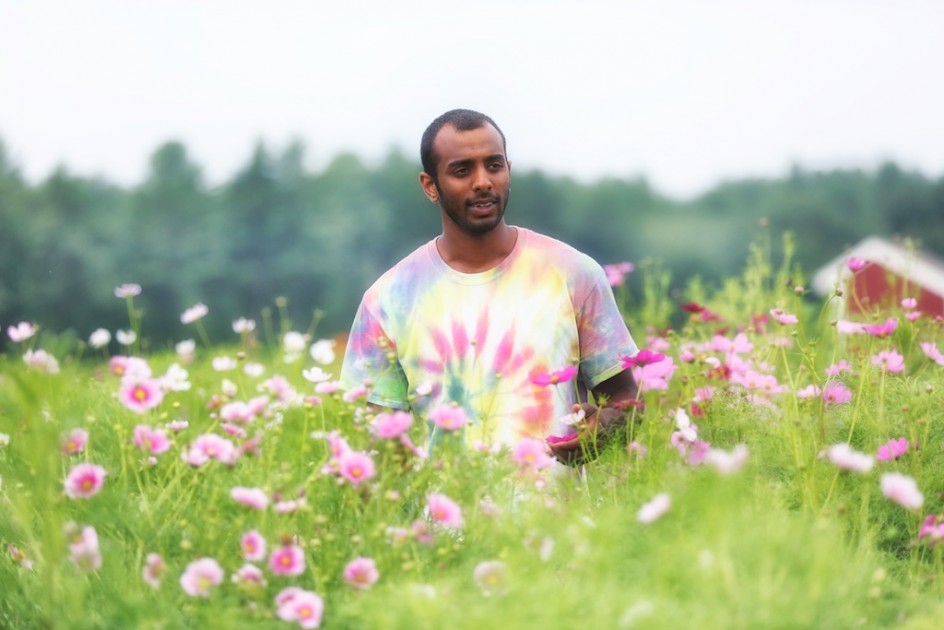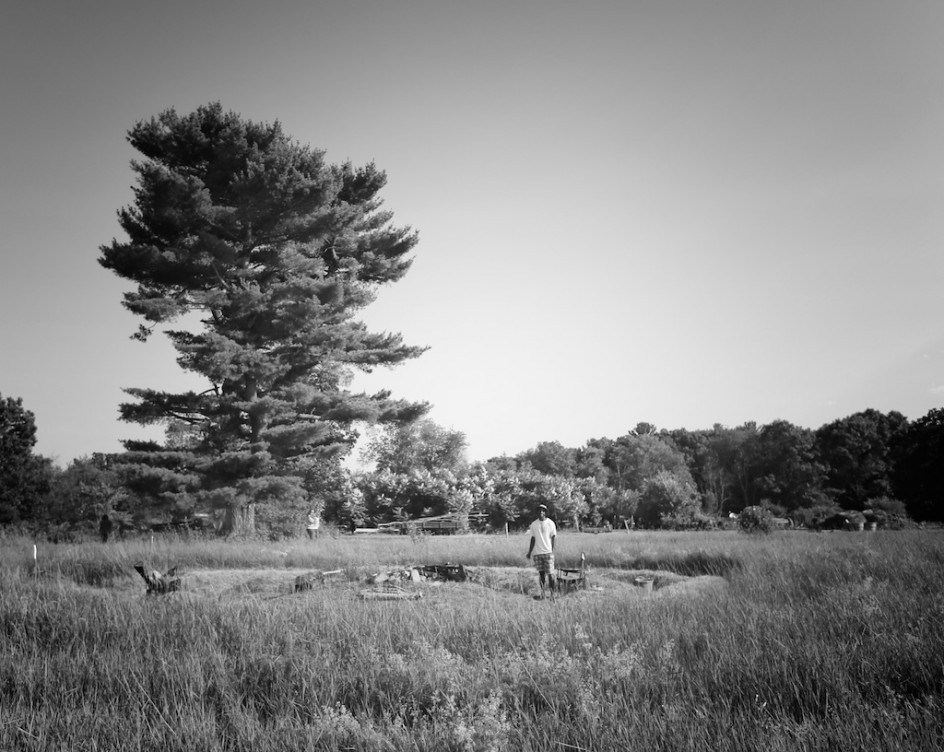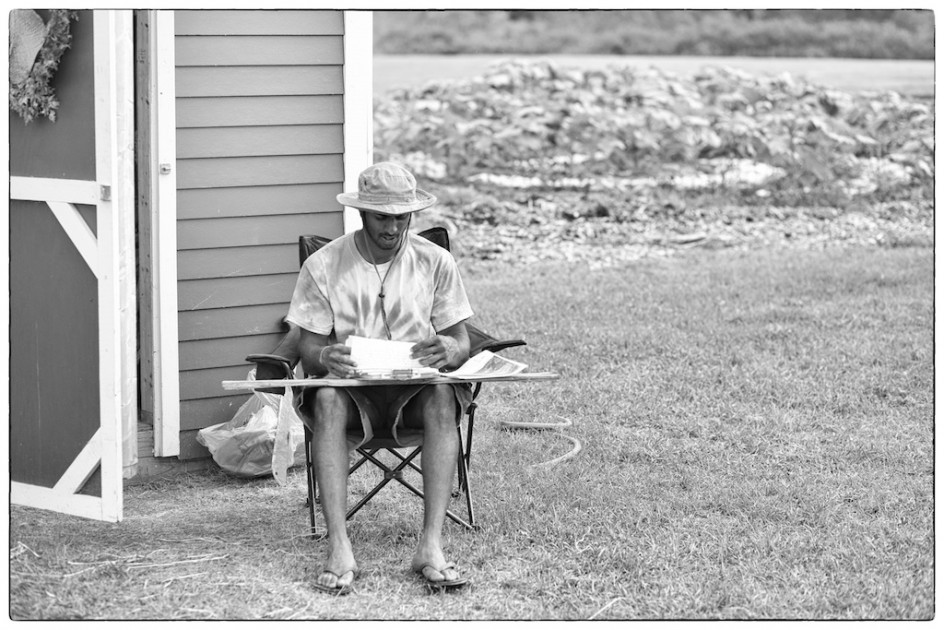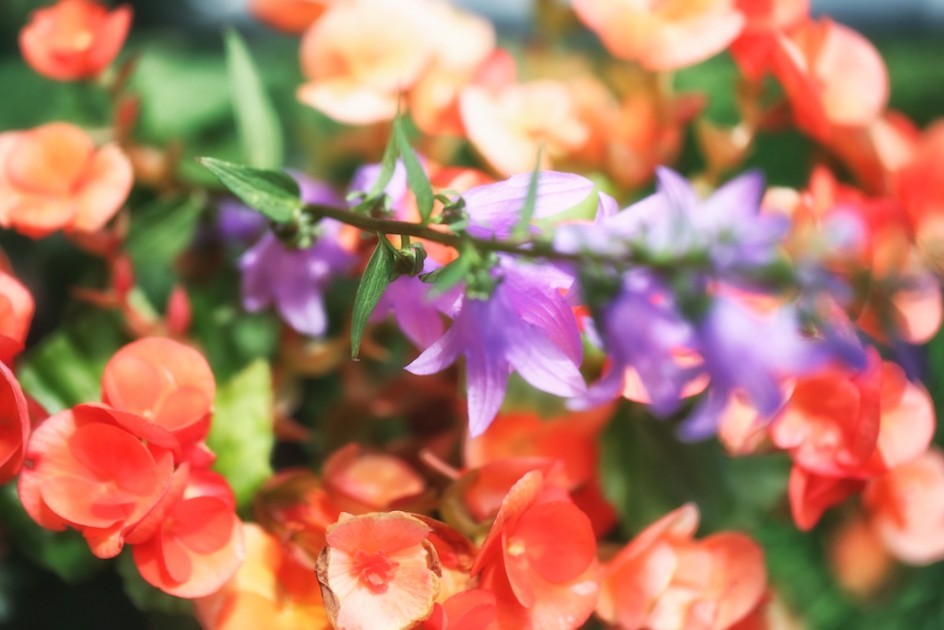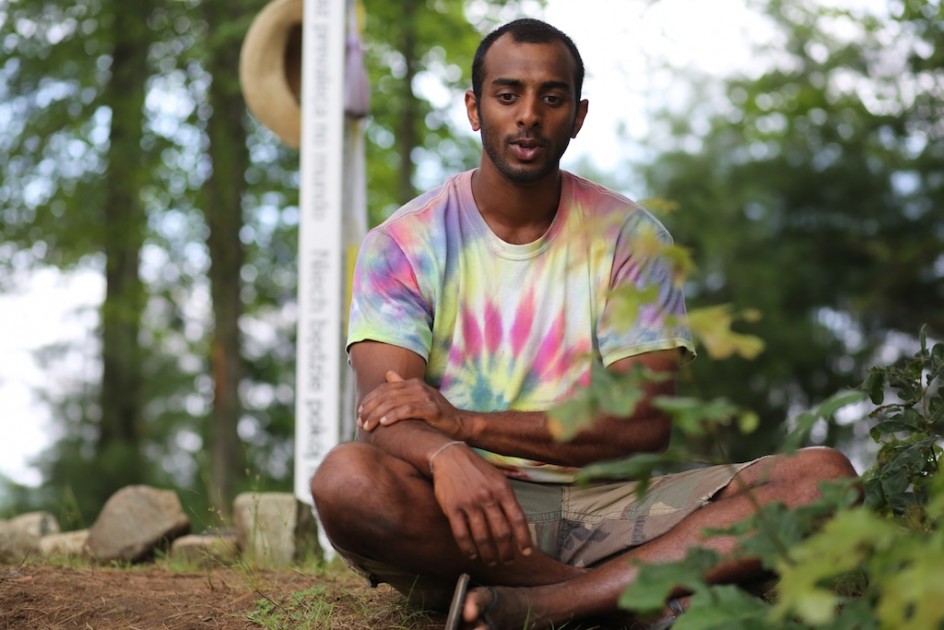
A man knows when he has found his vocation when he stops thinking about how to live and begins to live, wrote Thomas Merton. Mithra Katalunga seems to know this, he did not need to make himself a slave to a life and work he hates in order to find out. His work in his garden at Blue Star Equiculture speaks to the power of a spiritual life, and to it’s importance.
This summer, Mithra is sleeping in his garden at Blue Star, living alone among the beautiful flowers and vegetables he has planted in his mystical and very beautiful garden. This is the third in a series of posts. about him.
Mithra rejected the culture of materialism he saw all around him. He accepts the reality of human suffering and death. He rejected a life built around making money and scrambling for security. “The more you try to avoid suffering,” wrote Merton, ” the more you suffer, because smaller and more insignificant things begin to torture you, in proportion to your fear of being hurt. The one who does most to avoid suffering is, in the end, the one who suffers most.”
Our culture has become a fear one, dominated by lawyers, warnings, an abundance of caution, and a refusal to accept the nature of life, it’s crisis, mystery and suffering.
In Palmer, Massachusetts, in a beautiful and rapidly growing garden there is a young man who seems to know this and who is not an elder, a guru, a monk or a priest. Yet his spiritual self is carving out a summer of great meaning, and perhaps, a life of the same. He is a young Thoreau for our times, he has found his own Walden Pond, we need his message even more than we needed Henry David Thoreau’s.
In his encyclical, Pope Francis challenges all of us to ask “what is it we really need?” To recognize that what we take and buy comes out of the land and lives of others, and is bleeding Mother Earth to death. Mithra knows what he needs – a camping chair, some shovels and trowels, a tent, a piece of wood to write on, some fresh vegetables to eat, a cell phone.
In Sri Lanka, where Mithra lived most of his life, and in the United States, where he lives now, no one he knows says they want to be a farmer. “Everyone wants to be rich, to make money, to be a doctor or a lawyer or an engineer,” he says. “I never hear anyone say they want to be farmer, and it is such a beautiful thing to be.”
Mithra has always wanted to be a farmer. He wants to be a farmer still, only one educated in modern farming, in sustainable and environmentally responsible food growing.
Mithra wants a life that is humble and simple. He wants his garden to be self-sufficient, he wants his life to be the same. “Life is suffering,”he says “desire is suffering.” He does not try to hide from suffering, he accepts and embraces it as part of the sacred circle of life. He wants to treat his farm workers well, much the way he has been treated at Blue Star. “They are a community here,” he says, “they have my back. I don’t have to worry about getting fired or not earning more money, I just have to worry about my garden.”
I have learned in my own life that anxiety and fear is the hallmark of greed, anger and spiritual insecurity. Spirituality is the antidote to anxiety and fear, it requires us to look inward and ask how it is we really want to live, and challenges us to turn away from a life of fear and anger and enslavement, living in barren and ugly places doing work of no meaning for people who care nothing about us. Our culture teaches us to sacrifice a life of meaning for a life of what they call security, a ghost life, a false vision. Visit any nursing home where the elderly are hidden away without purpose and ask if they are secure, if their great trade-off of life for the safety they told they must have was worth it.
Mithra has made some of the same choices I have made, some I wished to make but could not, some I have come to make later in life. He does not live a life in fear, anxiety, anger or regret. Perhaps this is the beginning of his search for Nirvana, a state of true enlightenment. He says Nirvana is his ultimate goal.
Some people, I have seen, understand that we will all die, and that everyone and thing we love will die. Some people seem stunned by death, in their lives, their families, their dogs. What, I always wonder, did they think would happen? A garden is a circle of life, perhaps this is why Mithra is drawn to it, why he says he has learned so much from it.
“I suppose this summer that I want to live like a monk,” he says, and he does. Thomas Merton would have loved the life that Mithra is living this summer at Blue Star. His visits to the Peace Pole by the river, his evenings writing at his small home-made desk, his days working alone in the sun with flowers and vegetables, the sense of inner peace and contentment that he evokes. The wonderful garden he has brought to life.
How is it that Mithra Kulatunga knows the power of the horses, the importance of keeping animals in our every day lives, and the mayor of New York and his angry supporters who say they support the rights of animals do not? Perhaps because Mithra grew up with elephants working on his farm, and he knows how much the working animals need and love to work, and he knows how much people need to live and work in connection with animals. He knows things we have forgotten. The elephants, he says, were not belittled for doing cheap tricks for humans, their hard work with people is valuable and precious.
Solitude is a way to defend the spirit against the murderous din of our materialism and alarm, and solitude is what most of us have never known or will never know. That is a tragedy, Mithra’s life reminds us of the great beauty of solitude, rather than a live of devices and pressure. I find some solitude every day, it is my salvation and my defense against the roar and rage of the world.
Mithra does not, I am sure, have a perfect life, nor does he crave one. He is not a saint, but young man who has thought about how he wants to life, and is already living a life of meaning. He knows that a perfect life is not a life without suffering, but a life where suffering and struggle bring us to the great awakening, a life of grace and peace and freedom and authenticity.
It is a great privilege to have met and talked with Mithra, I will make sure to visit him often. He is 24 years old, he intuitively understands so many things I am just beginning to grasp. He is my brother in the search for a life worth living.

